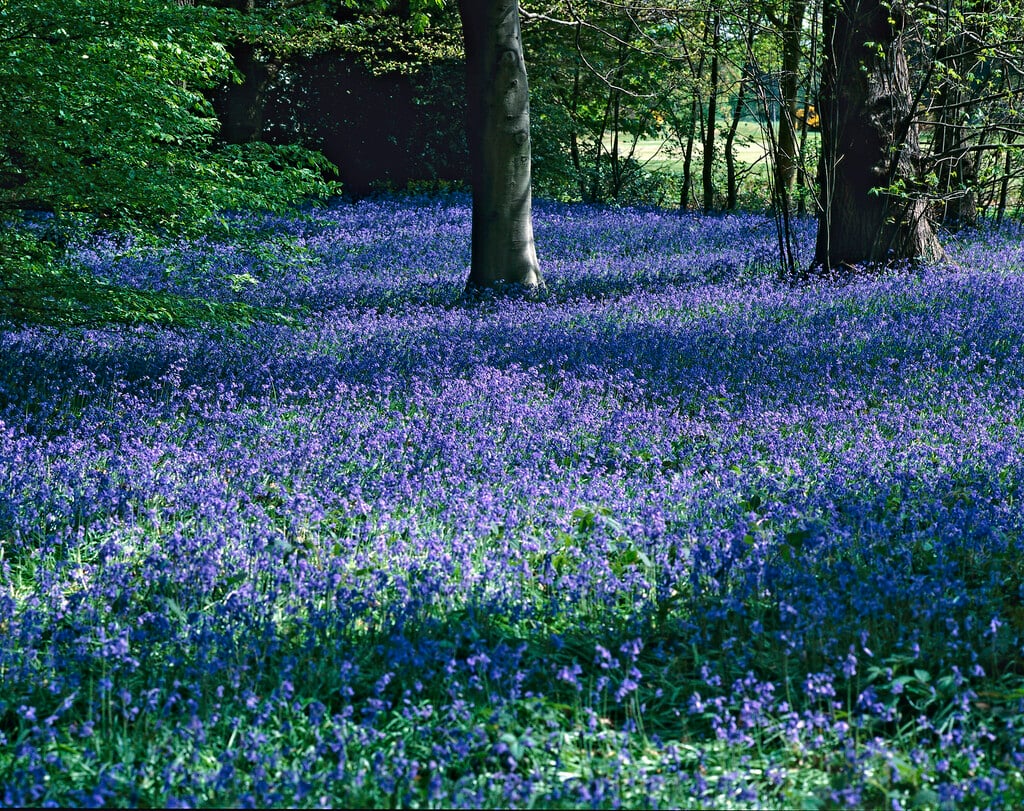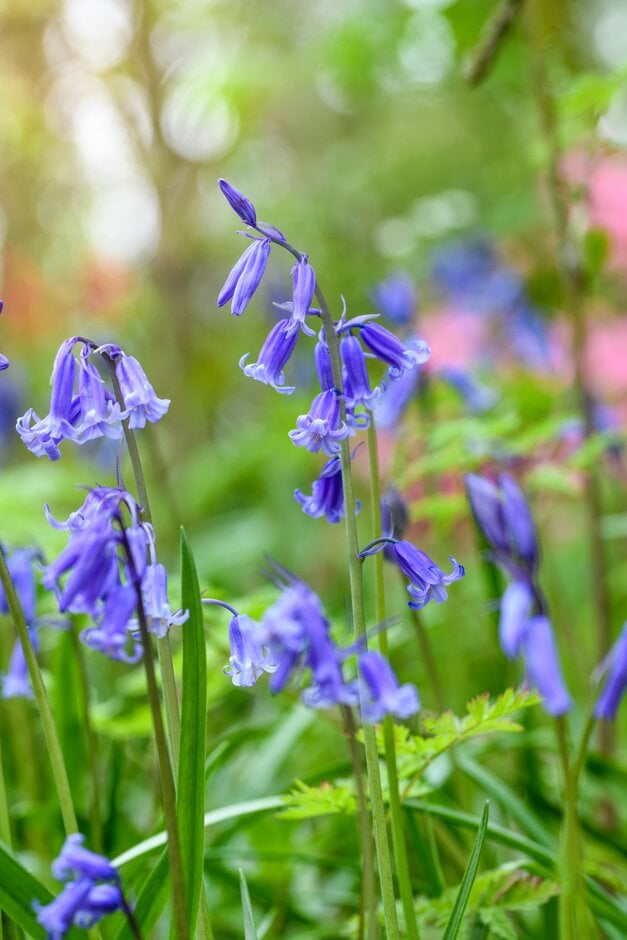Hyacinthoides non-scripta
bluebell
A vigorous, clump-forming bulbous perennial about 20-40cm tall, with linear, glossy dark green leaves to 45cm long, and erect stems bearing arching racemes of fragrant, narrowly tubular, mid-blue to violet-blue, or occasionally white, flowers in spring
Other common names
bell bottlebluebottle
see morecalver keys
common English bluebell
cover keys
crake feet
crow bells
crow leek
cuckooflower
culver keys
dog leek
dog's leek
English bluebell
fairy flower
harebell
single gussies
spreading bluebell
squill
wild hyacinth
wood bells
Size
Ultimate height
0.1–0.5 metresTime to ultimate height
2–5 yearsUltimate spread
0–0.1 metreGrowing conditions
Moisture
Moist but well–drained, Well–drainedpH
Acid, Alkaline, NeutralColour & scent
| Stem | Flower | Foliage | Fruit | |
| Spring | Blue White | Green | ||
|---|---|---|---|---|
| Summer | Green | |||
| Autumn | ||||
| Winter |
Position
- Partial shade
Aspect
North–facing or West–facing or East–facing or South–facing
Exposure
Exposed or Sheltered Hardiness
H6Botanical details
- Family
- Asparagaceae
- Native to GB / Ireland
- Yes
- Foliage
- Deciduous
- Habit
- Clump forming
- Potentially harmful
- Harmful if eaten. Wear gloves and other protective equipment when handling. Pets (dogs, cats, rabbits): Harmful if eaten. For further information and contact numbers regarding pets, see the HTA guide to potentially harmful plants
- Genus
Hyacinthoides are bulbous perennials with linear to strap-shaped leaves and bell-shaped or star-shaped blue, violet or white flowers in spring
- Name status
Correct
- Plant range
- W Europe
How to grow
Cultivation
Plant 8cm deep in autumn in moderately fertile, humus-rich, well-drained soil that does not dry out; spreads rapidly and has the potential to become a nuisance in the wrong place, but also a good plant for wildlife. See bluebells for further advice
Propagation
Propagate by seed, sown in pots in a cold frame when ripe, keep shaded and do not allow to dry out. Alternatively remove offsets in summer
Suggested planting locations and garden types
- Cottage and informal garden
- Wildflower meadow
- Wildlife gardens
- Ground cover
Pruning
No pruning required; can deadhead to prevent self-seeding
Pests
Generally pest-free
Diseases
Generally disease-free
Get involved
The Royal Horticultural Society is the UK’s leading gardening charity. We aim to enrich everyone’s life through plants, and make the UK a greener and more beautiful place.

